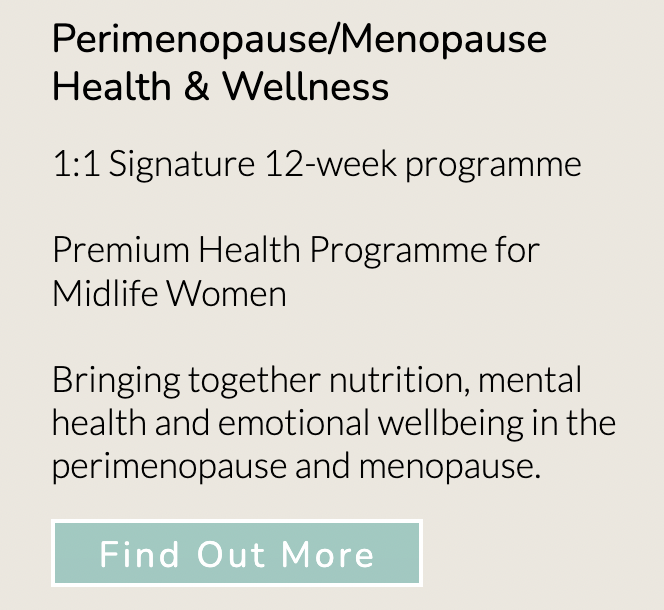Built to help women have a 360° approach to health through perimenopause to post-menopause.
welcome to MY BLOG
How to Alleviate Menopausal Symptoms

August 3, 2022
Hot flushes are one of the most common symptoms of menopause. Nearly every single woman going through perimenopausal or menopausal stages has reported feelings of hot flashes that vary from person to person.
But what’s not so widely recognised are the psychological effects. This includes things such as low confidence/self-esteem, mood swings, panic attacks, and even anxiety.
If you want to know how you can improve your lifestyle and help yourself deal with this symptom of menopause better, then we’ve got you covered! It’s not all doom and gloom though, diet and nutrition can go a long way to helping you feel better. Here’s how:
Move your body
Countless research has already shown that exercise has a lot of positive impact on our bodies. It can improve overall well-being by improving our blood circulation, releasing much-needed hormones, improving our mood, increasing our confidence, and giving us better bone and muscle mass among many others.
Exercise helps us reduce the impact of menopause symptoms such as hot flashes, mental health, self-esteem, and many others. So get out there and keep on moving your body in any way that you could!
Omega-3 intake
Omega-3 fatty acids have been found to contribute to improving our moods. This is true for healthy kinds of fats which help our bodies instead of just contributing to our cholesterol levels and weight.
Aside from this, they have also been found to significantly reduce the risk of developing type 2 diabetes, heart disease, obesity, and other inflammatory diseases that menopausal women are prone to. Hence, omega-3 fatty acids are an essential part to add to our diets if we want to live healthily, especially in our menopausal stage.
What foods should we eat? Some great additions to our diet would be oily fish such as mackerel, salmon, and sardines. In addition, Nuts and seeds such as chia seeds and walnuts along with plant oils such as flaxseed oil and canola oil are also great alternatives.
Tryptophan intake
Tryptophan is known as a precursor to serotonin– the chemical responsible for making us feel happier. It also helps in things such as sleep, mood, and digestion. This makes our experience of the menopausal stage a lot easier to handle.
Where can we get more tryptophan? You can increase your tryptophan intake simply by consuming food such as beans, legumes, cheese, salmon, eggs, and spinach. Furthermore, some studies have also suggested that carbohydrates can improve tryptophan’s access to the blood-brain barrier making it easier for it to cross and making us feel better and less irritated.
Magnesium intake
Since we’re talking about the various nutrients needed by the body, it’s also important to know that magnesium can also help our body deal with the problems brought about by the menopausal stage.
Magnesium plays a vital role in keeping osteoporosis away by keeping our bones strong and healthy and helping improve our heart health and lessening any difficulty in sleeping that we may have. Hence, magnesium is another important part of our diet that we must add.
We can do this by eating dark green leafy vegetables, nuts, whole grains, avocados, bananas, and even dark chocolate! Food rich in magnesium is important for tryptophan, serotonin, gamma amino-butyric acid (GABA), and dopamine production – all vital for a good mood.
Consider your gut health
Inside our guts are trillions of small bacteria and other microorganisms thriving and multiplying. Don’t be alarmed though as these microorganisms help our bodies function and help us live everyday. There’s no escaping the link between our gut and our brain, especially when you consider that up to ninety percent of the body’s serotonin is made in the digestive tract.
They perform a variety of functions which includes but are not limited to, helping us fight harmful kinds of bacteria, digest food, absorb nutrients more easily from our food, and produce vitamins that we need. As such, in our menopausal stage, we need to make doubly sure that our gut health is taken care of!
Things such as chronic stress, and improper use of antibiotics are harmful habits that can damage our gut health while consuming probiotics such as yogurts and kefir can do wonders for our gut health.
Consume better drinks
We have always been told to drink lots of water every day. Yet many of us still consume more caffeine, soft drinks, sugary drinks, and alcoholic drinks than normal. Too much alcohol can increase our chances of getting high blood pressure, breast cancer, heart disease, and liver disease. While excessive caffeine can affect our heart rate and make us feel more on the edge and anxious. Thankfully, there are lots of choices these days when it comes to booze-free drinks, from zero percent beer to non-alcoholic cocktails and spirits that taste surprisingly like the real thing.
Get better sleep
Last but definitely not least, getting enough sleep is also essential if we want to minimize the effects of menopause. However, it’s not just any kind of sleep that we need. We actually need high-quality sleep instead of waking up and still feeling groggy with a headache.
Getting enough sleep allows our bodies to rest and recover. It also improves our mental health and emotional well-being. On the other hand, not getting enough sleep contributes to gaining more weight and having blood sugar spikes among many others.
To get better sleep, there are a lot of things you can do. Try Epsom salt baths, eat magnesium-rich foods such as green leafy veg, almonds, and bananas or invest in sleep aids like pillow sprays. In addition, having a consistent sleeping schedule and routine can also help us sleep better and wake up feeling more refreshed. A sleeping routine is something like getting away from all kinds of electronics at least 30 minutes before going to bed.
These are some of the best ways you can follow to alleviate the symptoms of menopause such as hot flashes, weight gain & low mood, etc. Every single woman will go through menopause, but exactly what her experience will be is unknown. What we do know is that even though the majority of us will suffer symptoms that impact our lives, try a mix of these tips or follow all of them to see which one works for you the best!
We hope that these tips are helpful to you and to every other woman out there going through a difficult time due to menopausal symptoms. Remember that you are not alone and that you deserve to have a better experience in this stage of life.
Louise xx
A little reminder of some fabulous ways that you can work with me…



Leave a Reply Cancel reply
I have a reputation as a compassionate and innovative therapist who produces rapid and lasting changes with my clients. Are you ready to become my next success story?
Website Designed W/ Love By Traveller By Trade
Copyright © 2021, Louise The Therapist
Privacy Policy